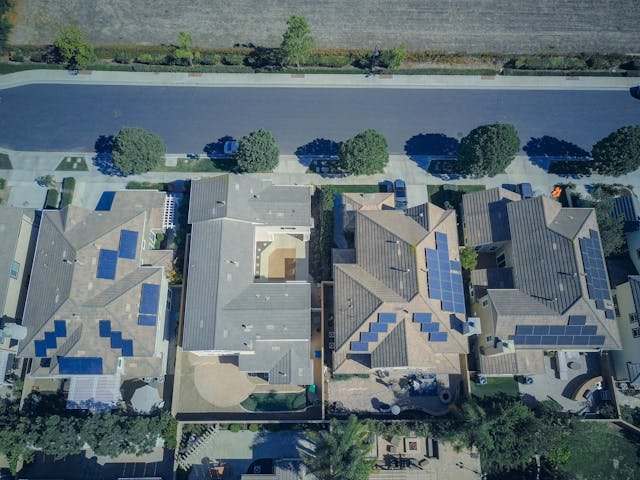In a time of growing environmental concerns and increased energy use, solar power shows promise and innovation. Using the sun’s plentiful energy has several benefits for both households and the environment, making it a viable substitute for fossil fuels.
1. Solar Energy Basics: Capturing the Power of the Sun
Basically, solar energy uses photovoltaic (PV) panels that are put on roofs or in the ground to convert sunlight into electrical current. These panels’ photovoltaic (PV) cells collect sunlight and produce direct current (DC) power. DC electricity is then transformed into alternating current (AC) electricity that may be used in homes and businesses. Photovoltaic materials in PV cells release electrons in the presence of sunlight, which results in the creation of an electric current. This technique is based on this phenomenon. Solar panels are a dependable long-term investment for producing clean power since they run quietly and need little upkeep.
2. Environmental Benefits: Reducing Carbon Footprints and Air Pollution
The environmental effect of solar energy is one of its most persuasive benefits. When fossil fuels are used to generate energy, they release dangerous greenhouse gases like carbon dioxide; in contrast, solar power generates electricity without any emissions or pollutants. Homeowners may dramatically lower their carbon footprints and lessen the effects of using fossil fuels on climate change by switching to solar energy. Furthermore, by lowering emissions of sulfur dioxide, nitrogen oxides, and particulate matter, solar power improves public health outcomes and contributes to cleaner air. These contaminants worsen cardiovascular and respiratory conditions and degrade the ecosystem.
3. Financial Advantages: Savings on Electricity Bills and Return on Investment
Long-term financial gains are significant when investing in solar energy. Depending on the size and effectiveness of your solar system, you may be able to eliminate your monthly energy costs by producing your electricity from solar power. When opposed to unstable utility rates based on the price of fossil fuels, solar panels provide decades of dependable power output and predictable energy prices due to their 25-year or longer lifetime. Furthermore, the savings on power bills and other incentives like tax credits, rebates, and net metering credits make solar energy projects often offer good returns on investment (ROI). When solar energy output is inadequate, net metering enables owners of solar energy systems to get credits for excess power produced and exported to the grid, which balances future electricity usage.
4. Grid Resilience and Energy Security: Enhancing Reliability and Independence
By minimizing dependence on centralized power networks and diversifying electricity sources, solar power improves energy resilience. Solar-powered homes can produce energy on-site, making them a dependable source of power in an emergency or during grid disruptions. Modern energy storage technologies, such as grid-connected storage systems and lithium-ion batteries, allow homes to store extra power for later use and further enhance energy management. Illinois solar incentives play a crucial role in encouraging homeowners to adopt these technologies, offering financial benefits that make solar power more accessible and affordable. These developments open the door to a more sustainable and resilient energy future by facilitating the integration of renewable energy sources into the current grid architecture.
5. Technological Innovations and Future Trends: Driving Solar Energy Evolution
With continuous developments in PV technology, energy storage options, and smart grid integration, solar energy has a bright future. Thin-film technologies and bifacial panels are examples of solar panel design innovations that increase energy efficiency and provide installation options in a variety of climates and places. By improving self-consumption rates and storing excess electricity, energy storage devices enhance solar power plants’ already advantageous environmental and economic aspects. Furthermore, real-time monitoring and management of power production and consumption are made possible by smart grid technologies, which facilitate demand response and grid optimization techniques. These developments facilitate the smooth integration of renewable energy sources, such as solar power, into the electrical grid and increase energy efficiency. They also lower transmission losses.
Conclusion
For households hoping to attain energy independence, lessen their environmental impact, and ensure long-term financial savings, solar power is an appealing option. You can light your house and help create a greener, more sustainable world for future generations by using the sun’s plentiful energy. Take advantage of solar energy’s benefits to power your home with clean, renewable electricity and clear the path for a more robust and optimistic energy future.
















